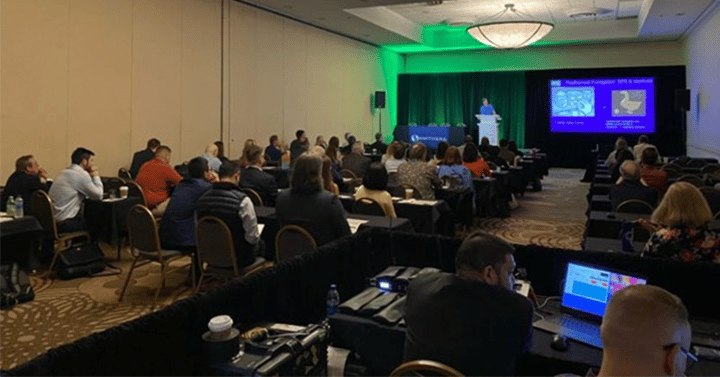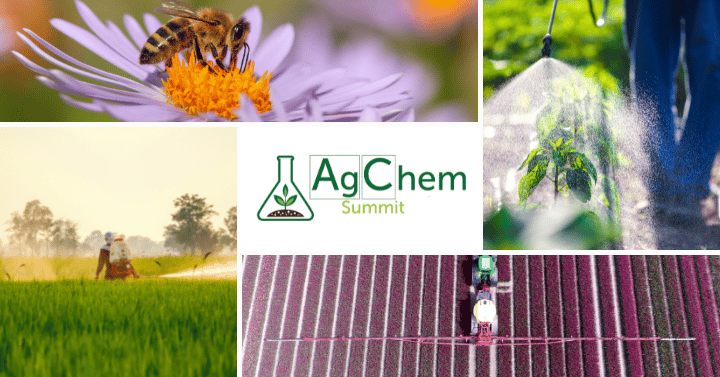By Frances Davidson, Senior Account Manager at Kline
The annual AgChem Summit in Raleigh, NC, put a spotlight on the biggest crop protection and biological product developments in the industry – all while attracting an enthusiastic, receptive crowd.
“The vibe was positive and progressive,” said Frances Davidson, Senior Account Manager at Kline. “The conference hadn’t taken place in person since 2019, so those in attendance were excited to pitch their new products and absorb trends that are in progress. Many presentations touched on new biological products that are replacing synthetic pesticides, stimulants, adjuvants, and fertilizers; some highlighted what’s on the digital frontier for crop protection.”
Here are the eight biggest takeaways from the summit:
- Corbet Scientific is marketing its “activator sticker” — a water-based adjuvant that makes active ingredients stick to the leaf and stay in the top eight inches of soil to help pre-emergent herbicides remain in effect, preventing the growth of weeds in field crops.
- FMC is developing integrated pest management solutions that use multiple modes of action with both biological and synthetic solutions. In June, the company acquired Denmark-based BioPhero to mass produce fermentation-based pheromones at a price that’s low enough to enable use on row crops and compete with traditional pesticides. On the digital front, FMC reported that it’s using Artificial Intelligence (AI) to help predict pest pressure one week in advance so that growers can prepare for treatments.
- The USDA Agricultural Research Service discussed consumer demand for natural post-harvest treatments, leading to the use of semiochemicals to control insects in stored grains or crated food for domestic and export use.
- Vestaron presented its new peptide, BASIN; used for crop protection, it will be reviewed by the EPA this September. The company is expecting to present two other biological modes of action to the EPA in 2024 & 2025.
- Mycologics is working with the National Corn Growers Association in Illinois to use biofungicides to help growers with fungal issues via a microbial metabolite extract. It’s compatible with organic and non-GMO
- Innatrix is developing a biopesticide to battle nematodes using a peptide biopest platform. The company expects it to be in the market by 2025.
- Microsoft presented its view of what it will take to digitalize the agriculture and food system. That includes new IOT (Internet of Thing) devices to measure everything from the acidity of the soil to moisture and weather; examples include the Metos weather stations, dataloggers, and sensors from Pessl Instruments.
- Corteva has a slew of more sustainable active ingredient products, with criteria set and tools to measure them. The company is using AI and machine learning to improve product, supply, process, and efficiency.
“The event got everyone’s creative juices flowing,” Davidson said. “Kline will continue to keep an eye on all the themes we saw at the summit and include them in research for our in-depth studies on crop protection, biologicals, professional pest control, vegetation management, and other specialty pesticide markets.”
Next month, Kline will begin to publish Global Biopesticides: An Overview of Natural Pesticides, with editions covering Argentina, Brazil, Chile, China, Frances, Germany, India, Italy, Japan, Mexico, Morocco, South Africa, Spain, the United Kingdom, and the United States. Each report provides a window into the growing use of biological products, with technology descriptions, company profiles, and an end-use analysis of product pest targets; also included are outlooks and product category forecasts for each country/market segment and company.


